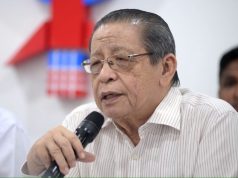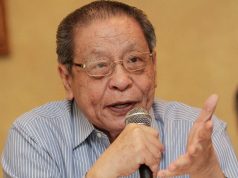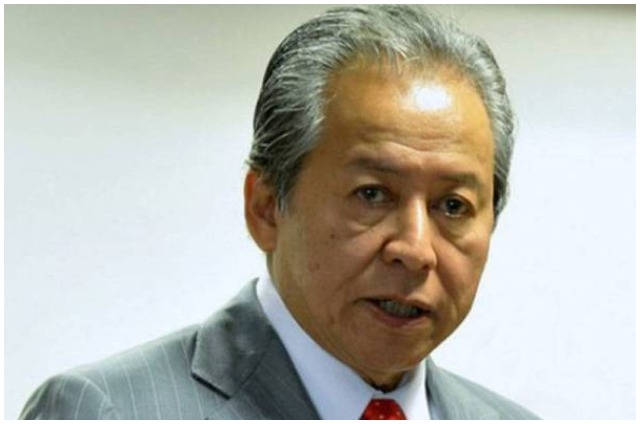Kuala Lumpur, Dec 17 – The dates March 1 and March 2, 2013 will forever remind Malaysians of a black spot in the nation’s history when the country’s sovereignty was threatened and eight heroes were killed trying to defend it.
Blood was shed in Lahad Datu and Semporna, Sabah, when a group of militants from south Philippines fired away at members of the Royal Malaysia Police (RMP) who were tracking down the group who claimed to be from the Sulu Sultanate.
The Sulu militants aligned to the Jamalul Kiram III royal household landed in and attacked Kampung Tanduo, Lahad Datu on Feb 12 to seize back their territory in Sabah’s east coast.
The incident claimed the lives of two members of the Malaysian Armed Forces, while 68 militants were killed while battling with local security forces.
Two days after some 120 militants arrived in Kampung Tanduo, Prime Minister Datuk Seri Najib Tun Razak was reported as saying the Malaysian government would do the best and negotiate to tackle the issue.
Malaysia had clearly been tolerant when they practised gentle negotiations with the militants who refused to leave the country despite being asked to do so by Feb 26.
Three days later, on a Friday, Kampung Tanduo saw more bloodshed when a shootout between policemen and militants killed two VAT 69 commandos, Insp Zulkifli Mamat and Corporal Sabaruddin Daud.
The shootout also killed 12 militants.
Six other policemen died in an ambush at Kampung Simunul, Semporna. Eight militants were killed in the 8pm incident.
Shocked by the violence shown by the group, the Prime Minister ordered a massive offensive move and the country’s security forces targeted their stronghold through air strikes and land offensives in Ops Daulat.
At the same time, the Malaysian government realised that many Sabah residents were of Sulu ethnicity and Najib visited the state on March 7 to meet with community leaders to say how the government did not doubt their loyalty to the country.
During a news conference in conjunction with his visit, Najib also announced the establishment of the Eastern Sabah Security Command (ESSCOM) which comprises the districts of Kudat, Tawau, Kunak, Sandakan and Lahad Datu.
This is was followed by the formation of the Eastern Sabah Security Zone (ESSZONE) as a legal foundation to the ESSCOM.
Ops Daulat also led to the arrest of individuals who abetted the militant group and members who came out from hiding after the attacks.
On March 21, eight Filipinos were brought to court and faced either the death sentence or life in prison for waging war on the the Yang di-Pertuan Agong and taking part in the militant group.
Up to that date, 443 people were reported to have been arrested for entering the Ops Daulat red zone and other offences, while 173 were detained under the Security Offences (Special Measures) Act 2012 (SOSMA).
As a token of appreciation for the fallen heroes, the Prime Minister announced their promotion.
Insp Zulkifli was posthumously promoted to ASP and Sabaruddin to Sargeant. Six others were Supt Ibrahim Lebar (ACP), ASP Michael Anak Padel (DSP), Sargeant Abdul Aziz Sarikon (Sargeant-Major), Lance Corporal Mohd Azrul Tukiran (Corporal), Sargeant Baharin Hamit (Sargeant-Major) and Corporal Salam Tugiran (Sargeant).
Two members of the armed forces who died were Private Ahmad Hurairah Ismail, 24, killed in battle and Private Ahmad Farhan Ruslan, 21, who died in a road accident, were promoted to Corporal.
The Prime Minister described the militant intrusion in Lahad Datu as not only a wake up call for the government, but also for Malaysians, especially those in Sabah, about the importance of being ready for external threats.
– Bernama











